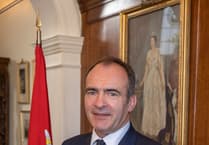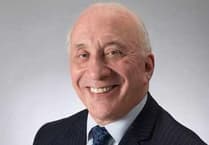Members of the House of Keys can now be absent from prayers at the beginning of sittings if they don’t wish to take part.
The change came last week when members voted through new recommendations to Daphne Caine’s motion on chaplaincy and prayers.
Following a debate in Keys in February on whether members should have to pray or not, Mrs Caine moved a report containing five recommendations on behalf of the House of Keys Management and Members’ Standards Committee that responded to the debate.
These recommendations were passed but with some concern.
Mrs Caine said in the sitting: ‘Those proposals to modernise proceedings in this House by removing prayers were a step too far for some.’
Previously, no nominations for chaplain were made, but nominations subsequently were received. The first recommendation sought approval to the appointment of the Reverend Irene Cowell for a term ending six months beyond the next general election in 2027.
The next recommendation enabled the length of appointment to be determined by the committee in future as appropriate to the circumstances of the chaplain’s appointment, and the third recommendation removed consideration of an honorarium, which has not been paid to the House of Keys chaplain for some years.
atheist
The fourth amendment would let the Speaker lead prayers in the chaplain’s absence and have the power to delegate to another member, which means an atheist could potentially be asked to lead prayers.
In response to members responding that absence from prayers should be permitted, recommendation five clarified that the service shall not be interpreted as including prayers.
Douglas East MHK Joney Faragher said she believed the outcome was ‘a great shame and a missed opportunity to modernise the House’.
‘Tradition is no excuse,’ she said. ‘Traditions adapt with society. This, as a solution, is exclusionary and divisive.’
MHK for Ramsey Lawrie Hooper agreed and added: ‘I am quite nervous about the suggestions being made here.
‘I am quite happy to support them as they are, because in principle they make sense, but I think the problem is going to be in the implementation.’
Mrs Caine said: ‘We have tried to find a compromise to support the majority and to be as inclusive as possible. I would support a fundamental rewrite of Standing Orders, and I think that is something that would be on the cards.’




